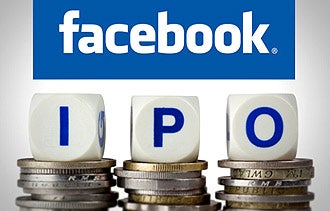Past Your Converted Adsense Code

 Facebook
could file papers for a mega initial public offering as early as this
week. Keeping in mind that it's roughly $100 billion valuation occurred
in the span of seven years, the question is: What were the moves that
Facebook made as a startup that resulted in such success?
Facebook
could file papers for a mega initial public offering as early as this
week. Keeping in mind that it's roughly $100 billion valuation occurred
in the span of seven years, the question is: What were the moves that
Facebook made as a startup that resulted in such success?Here are ten ways that I think helped Facebook become juggernaut:
- Nailing the Design. MySpace allowed users to
determine the look of their personal profile, while Facebook determined
that its user experience would be the same for everyone. And they nailed
it. Its crisp, clean and easy to navigate approach has so far attracted
more than 800 million active users.
- AcquHiring. When Facebook acquires another company,
they scoop up more than just technology and patents. They acquire
people with unique skill sets and a passion for connectedness. This
hiring strategy often called AcquHiring, enabled Facebook to generate more value from the companies they've acquired.
- Monetizing user data. Today, Facebook.com totes up
an amazing 28 percent of all display ads viewed by U.S. consumers
online. Why? Early on, it utilized its database of personal information
and urged advertisers to target those users with an affinity for their
particular products.
- Taking on accredited investors. Facebook has issued more than two billion shares to accredited investors. People like PayPal co-founder Peter Thiel and LinkedIn co-founder Reid Hoffman
got in very early, contributing to Facebook's angel and Series A funds.
Then Facebook raised $2.34 billion dollars in eight rounds of funding,
which is positioning the company to raise an additional $10 billion in
an IPO.
- Relaxing membership requirements. At first,
Facebook membership was restricted to Harvard students. By 2006,
membership was opened to anyone with a pulse and an email address,
giving it the broadest demographic appeal possible. From teenagers to
grandparents, everyone uses Facebook.
- Requiring real names. From the get-go, Facebook
members were required to use their real name -- a deviation from the
former avatar or nickname approach of identification from others such as
Friendster, message boards and forums that allowed users to remain
anonymous. Real names matter in the real world.
- Launching the Open Graph. Facebook's Open Graph,
the technology that allows anyone online to automatically identify what
they like anytime a Facebook "Like" button appears, is beginning to
re-index the web around people.
- Encouraging third-party applications. Facebook has registered more than a million developers
who are creating apps for the platform. Investment firms are also
launching multimillion-dollar funds dedicated to helping companies
develop new applications just for Facebook.
- Establishing user trust. I know what you're
thinking, but the fact remains that Facebook's privacy controls have
evolved to the point where the user is in control of how much of their
information is shared with advertisers and other users. To its credit,
Facebook has addressed concerns about privacy when they surface,
admitted mistakes and held third-party developers to extremely high
standards.
- Branding Pages. Allowing businesses, brands and organizations to create Pages on the site ushered in a new era in marketing. A fifth "P" -- Participation -- joined Product, Price, Place and Promotion in the traditional marketing mix, turning the top down marketing funnel into a viral loop









0 comments:
Post a Comment